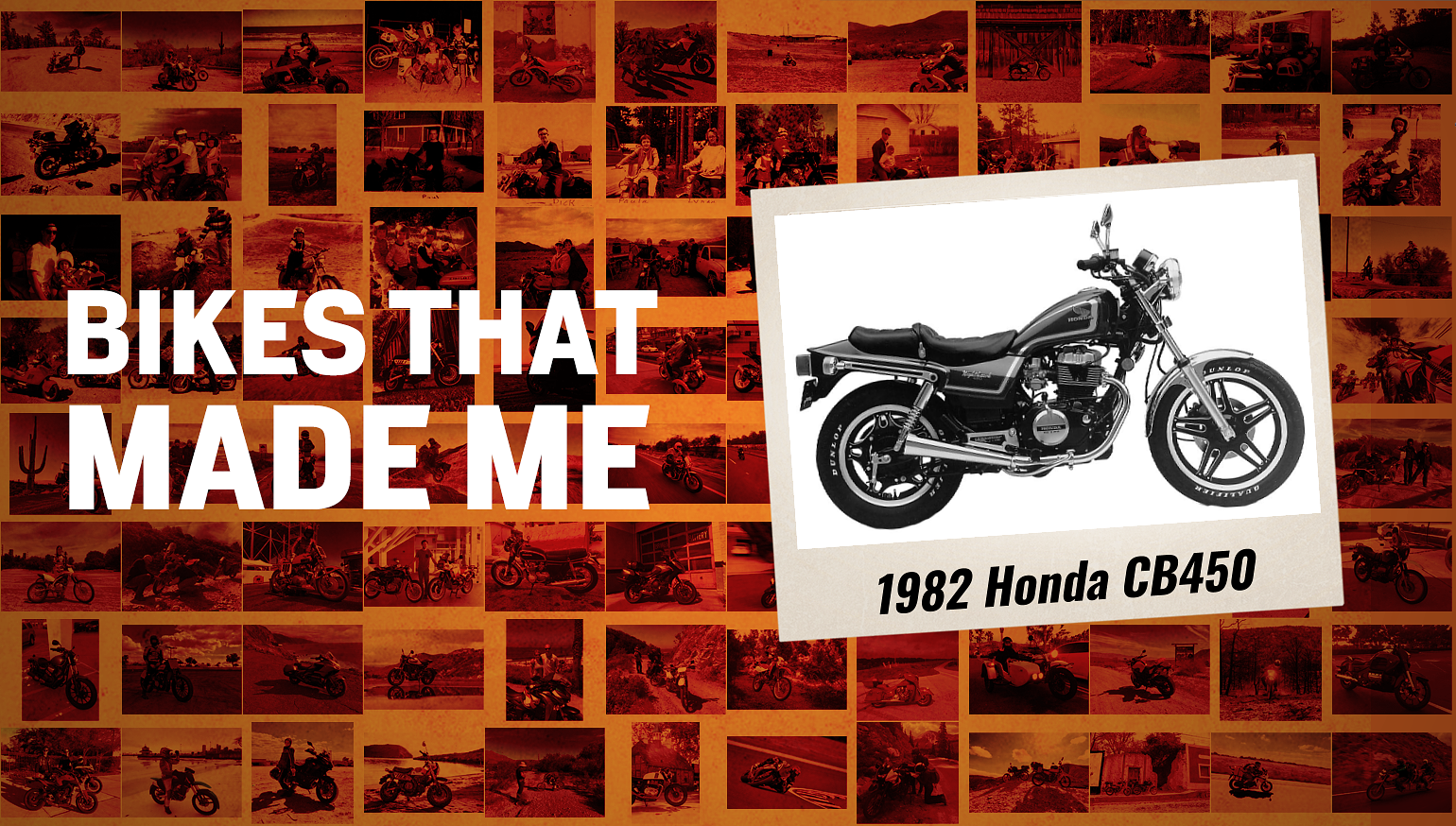Having traded $650 cash for a 1982 Honda CB450SC, I was faced with my first Moto-22: if the DOT facility where you take the road test to earn a shiny M endorsement is 20 minutes away by highway, but your learner's permit does not legally allow you to ride on said highway, what is a responsible new rider to do?
Since I can't be bothered to look up the statute of limitations on that particular act of civil disobedience, we'll just call it Schrödinger's Sojourn, and admit that the bike and I did in fact arrive at the cone course. I can say that wearing little more than a tweed jacket (I'm not sure why this felt like an appropriate choice) and an open-face helmet for your first adventure north of 40 mph in the technically-spring-but-definitely-doesn't-feel-like-it doldrums of April in Minnesota is an exhilarating experience. Especially for a brand new rider, whom I can neither confirm nor deny was in possession of the required paperwork.
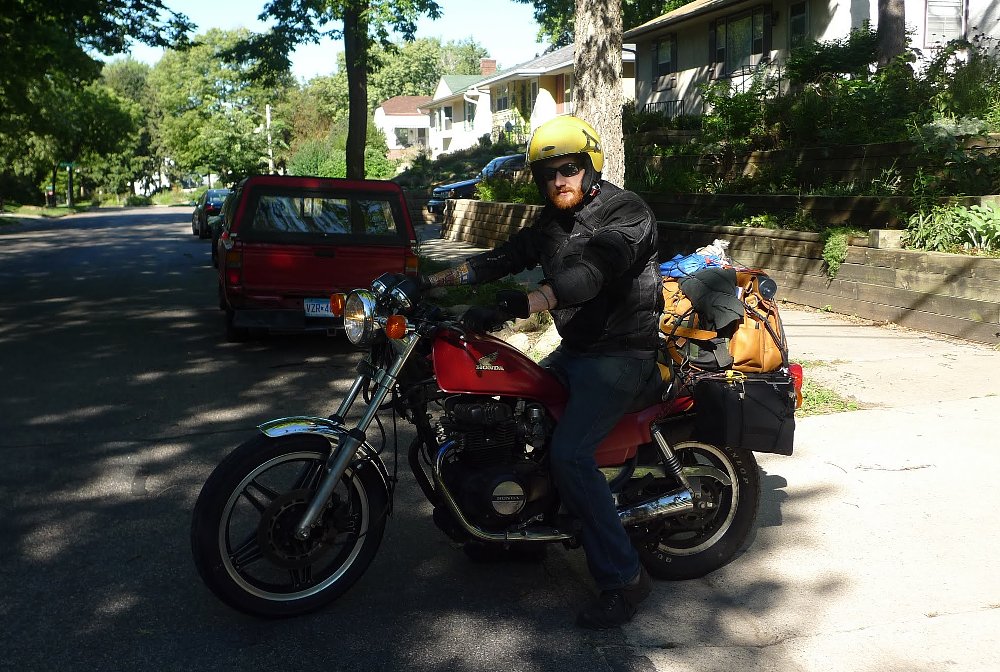
The 28-year-old beginner bike
The late 1970s was an exciting time for motorbike development, one side effect of which was that the 400 class was no longer considered a "big" bike. By 1982, disco was dead and Honda's 400 cc twins were beginner-friendly models. They got some newfangled plastic bodywork and Comstar wheels, because spokes are for the seventies. The Nighthawk was born, a name far too cool for what could charitably be described as the bike for folks of today who feel a manual-everything base model Civic feels a bit braggy, and for whom "performance" refers to how many miles they can squeeze out of the three-gallon tank.
My CB was already 28 years old when I bought it in 2010 and was not so worse for wear, given that it had spent more time sitting than it had rolling. The Hawk delivered my first catharsis as an amateur mechanic when I managed to diagnose the erratic idle as a loose choke linkage, which I fixed in an afternoon, even with my random hodgepodge of hand-me-down tools. Where before when I looked at a bike or under a hood I saw a loosely defined set of "enginey bits," their distinct interconnected functions began to reveal their secrets to me, and a few moments of triumph are prominent in my memories.
Given that the events of this story take place several years before my first smartphone, my pics of the old warhorse (or perhaps donkey would be more appropriate) are pretty thin, and I don't have any from before I began the questionable task of "customizing" it, beginning with a hilariously misguided rattle can matte red paint job. Unfortunately, having come of riding age in the era of the neo-café craze, I had a mind to turn the bike into some sort of brat-street-tracker chimera. Fortunately, I lacked the tools, money, and DIY competence to make much progress towards this end, and didn't get any further than slapping on a straight handlebar, which was actually an ergonomic improvement for me over the stock risers. But life with the Honda was about to get more interesting.
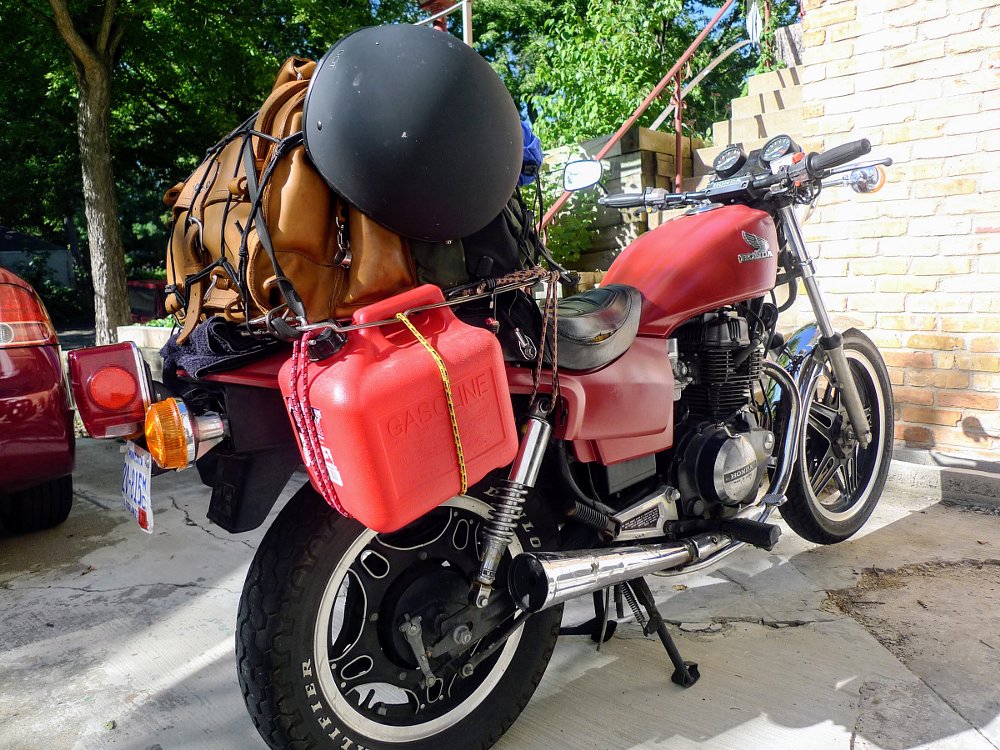
A 20-something kind of adventure
"It's a magical world, Hobbes ol' buddy. Let's go exploring!" — Bill Watterson.
Less than six months in my possession, and it was time for the stalwart CB to bear me on my first two-wheeled adventure. Having been presented with an opportunity to move to San Francisco, I asked the obvious question any invincible 22-year-old, with maybe a grand total of a thousand miles of experience under their wheels, would ask: Why not ride there?
Luggage rack? A dumpster-dived oven grate and a fistful of bungee cords. Nav system? A large-format paper road atlas of North America. Budget? The last paychecks from my two jobs, one of which my mom had to deposit for me as it wasn't cut until I was somewhere in Montana, a fact I discovered when my card was declined while attempting to buy a tank of gas.
There are quite a few lessons to learn on your first long-distance solo trip as a baby biker, and I could hardly imagine a more patient study partner in that journey than an evergreen Honda twin. Running out of gas in a horizon-spanning sea of corn and soybeans somewhere west of Bismarck, North Dakota taught me that a 30 mph headwind is probably going to impact fuel mileage. I ran across the interstate to the only visible structure for miles, raided the barn of the unoccupied farmstead for a can of gas that didn't smell like diesel or premix, slipped a twenty under their doormat, and got back on board.
Well, first I recounted my tale of derring-do to the state trooper who had pulled over to investigate the bike sitting unattended on the shoulder, and made sure to remind me to that there was a gas station at the last exit, which I had of course passed as I was sure I had another 30 miles in the tank. That same little detour taught me that packing a spare jerry can isn't sufficient; you have to actually put gas in it.
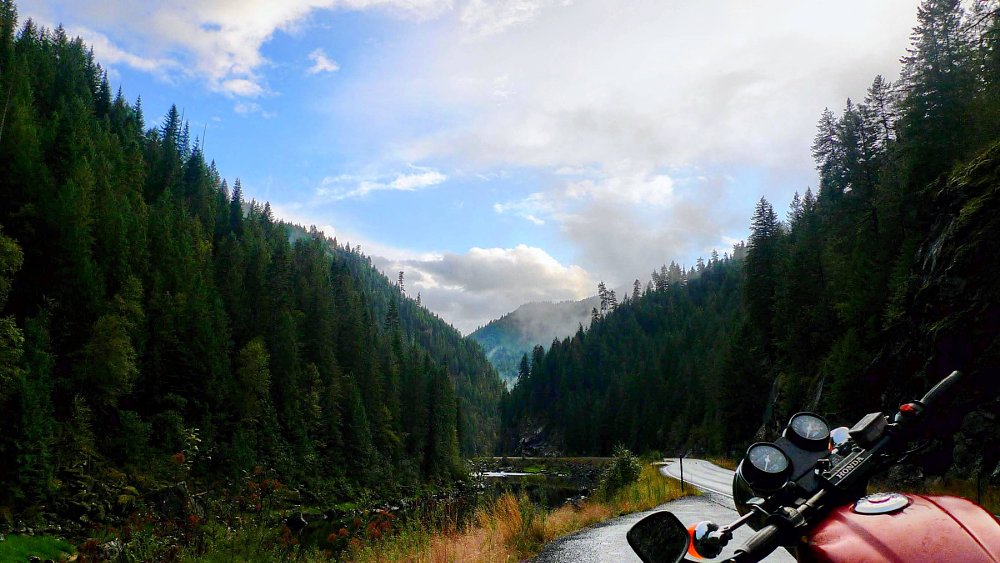
A week or so later, heading west out of Portland, I learned that proper gear is about the slide and the ride. There is a difference between the warm slow drops of a September rain in Minnesota, which knock the corners off the sizzling heat of the Little Summer and turn down the volume on the cicadas, and the insistent freezing drizzle of the Pacific Northwest in early autumn. My top was waterproof enough, as I had thankfully upgraded to an actual moto jacket prior to heading out. Somewhere around the Idaho border I had learned that what felt warm enough standing still could be frigid after an hour at interstate speeds, and was now wearing a set of thermals under my greasy Carhartts.
By the time I glimpsed the Pacific, the water had begun wicking its way up inside my jacket, hitching a ride through those thermals, I couldn't feel the hand grips or levers, and it was all I could do to come to a stop and get the kickstand down while my whole body shook from the soaking chill. The second lesson here was resourcefulness, and after inhaling a bowl of chowder at a diner, I stripped to my skivvies in the laundromat across the street and tried not to make eye contact with any locals while my gear took a spin in the dryer.
What else did the CB and I learn over the years after we made it across the Golden Gate? People steal spark plugs, apparently, and it can't hurt to keep a spare in your jacket. Target fixation is real, and watch out for decreasing radiuses in the Santa Cruz mountains. Ride your own ride, and don't try to catch up when somebody in full leathers takes you on the outside in a hairpin on the PCH. But it sure is exhilarating the first time you figure out that even with 43 horsepower, you can do that right back to the Corvettes and Porsches of the California coast.
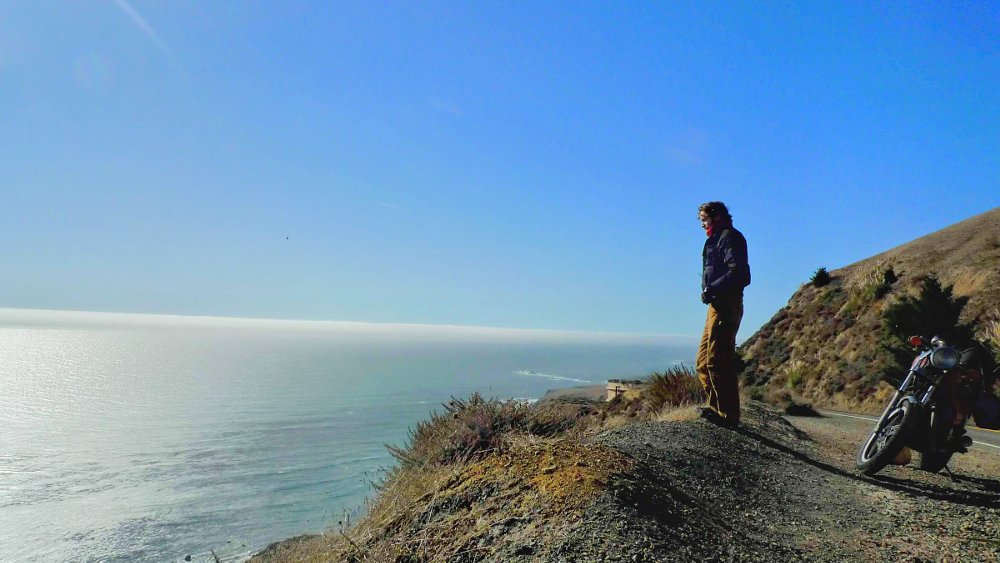
How having a bike made me
Considering the title of this series, I should probably be writing more about the bike, but I struggle to recall much in particular. Being a Honda, my most unnecessary luggage turned out to be the Haynes manual, toolkit, and spare quart of oil that spent 2,500 miles taking up valuable real estate on my oven grate. The hardware was far more up to the task than the software, and arrived on the West Coast with the same number of nuts and bolts, cheerful idle, and dauntless energy as it departed Minnesota with. Handling, braking, and accelerating are all things it could do, I'm pretty sure.
"It is not death that a man should fear, but he should fear never beginning to live." — Marcus Aurelius.
No, this isn't so much about the specific bike that made me, but rather that bikes made me. The real significance of that first motorcycle is not which model it was, but the fact that it existed at all and started me down this road to who I am today. Since the Nighthawk and I rolled out of Minneapolis and started chasing the sun across the West, how many other adventures big and small would I have missed had I not taken that leap? What stories would I not be able to tell when my turn comes at the campfire?
Maybe the people you meet on a Honda are you.




